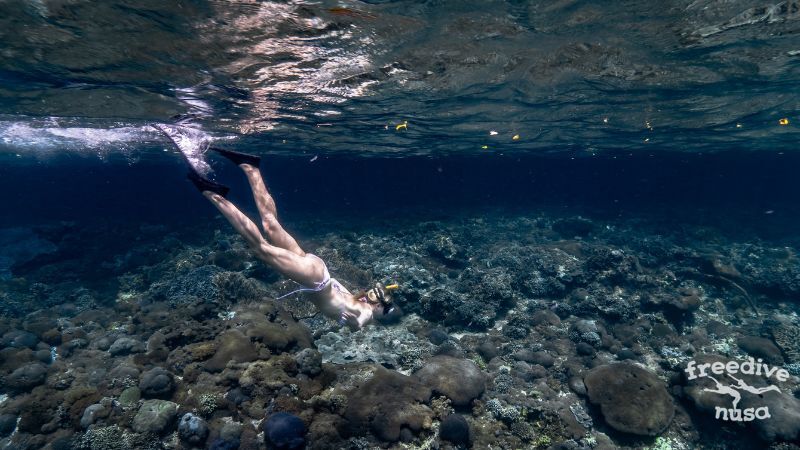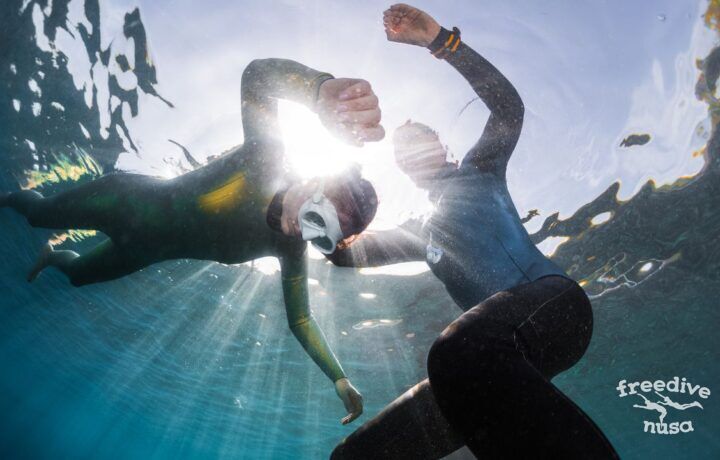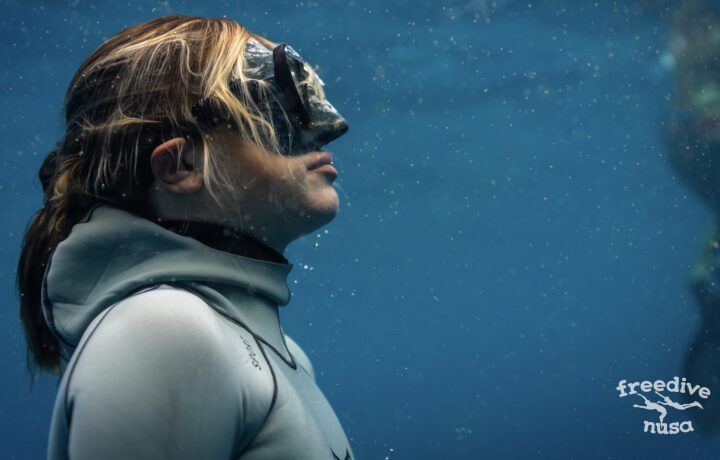Static breath hold is one of the disciplines (STA) in competitive freediving and a requirement in many freediving educational systems. But even if you’re not planning to take part in any competitions and successfully got your certification, static apnea is still a useful tool that can enhance your development as a freediver. Read on to find out how introducing it into your routine can make you a better freediver.
1. It delays contractions
Involuntary contractions in respiratory muscles that occur in response to the increased level of CO₂ in your body can be milder or stronger and bother you more or less. If these signals of hypercapnia prevent you from enjoying your dive and make you surface earlier, consider taking up static apnea training to increase your CO₂ tolerance. It will help delay your contractions and make them less annoying.

2. It increases your breath hold
Regular static apnea training increases your hypoxic endurance, which means you become more tolerant to decreased level of oxygen in your body and are able to hold your breath for a longer period of time. The longer your breath hold, the more time you can spend underwater and the deeper you can dive (or the greater the distance you can swim underwater in the pool). Hypoxic endurance doesn’t increase overnight, it requires time, but the result is well worth it.

3. It boosts your confidence
Being physically able to do something is not the same as knowing you can do it. Seeing increased numbers on the stopwatch is a great way to stimulate your confidence. When you know your comfortable breath hold is 3, 4, 5 minutes, you’re not intimidated by a long or deep dive because you realize it’s still well within your comfort zone. Your dives become much more comfortable. So you can focus on relaxation and having fun!

4. It helps you get back in shape faster
If you used to have an impressive breath hold at some point in your life when you were spearfishing, doing artistic swimming, or apnea diving and then had a break from the activity and lost it, static training is a great way to return to your old numbers quickly! As usual, regular practice is key.

5. It’s available any time anywhere
You can train static breath hold in a pool. In this case, just like with any freediving training, you need a competent buddy. Never train alone! Nevertheless, static apnea is one of the few freediving exercises you can perform on land. All you need is a bed, or a couch, or a comfortable chair, or a yoga mat, or a lawn in the shade. You’re all set! Use a special app, like Freediving Apnea Trainer or STAmina Apnea Trainer, or your smartphone’s stopwatch. You can train anywhere, free of charge, without a buddy, and at any time convenient to you. Magic!

With all that, we urge you not to solve problems you don’t have. If your contractions don’t bother you and your breath hold is enough for your current goals, don’t obsess over static apnea training and focus on technique, strength, meditation, or equalization. And if in doubt, enroll on a static apnea workshop at Freedive Nusa! A professional and coach will explain when static breath hold training benefits you, how to train to hold your breath longer in a safe way, and show various breathing techniques for freediving.



